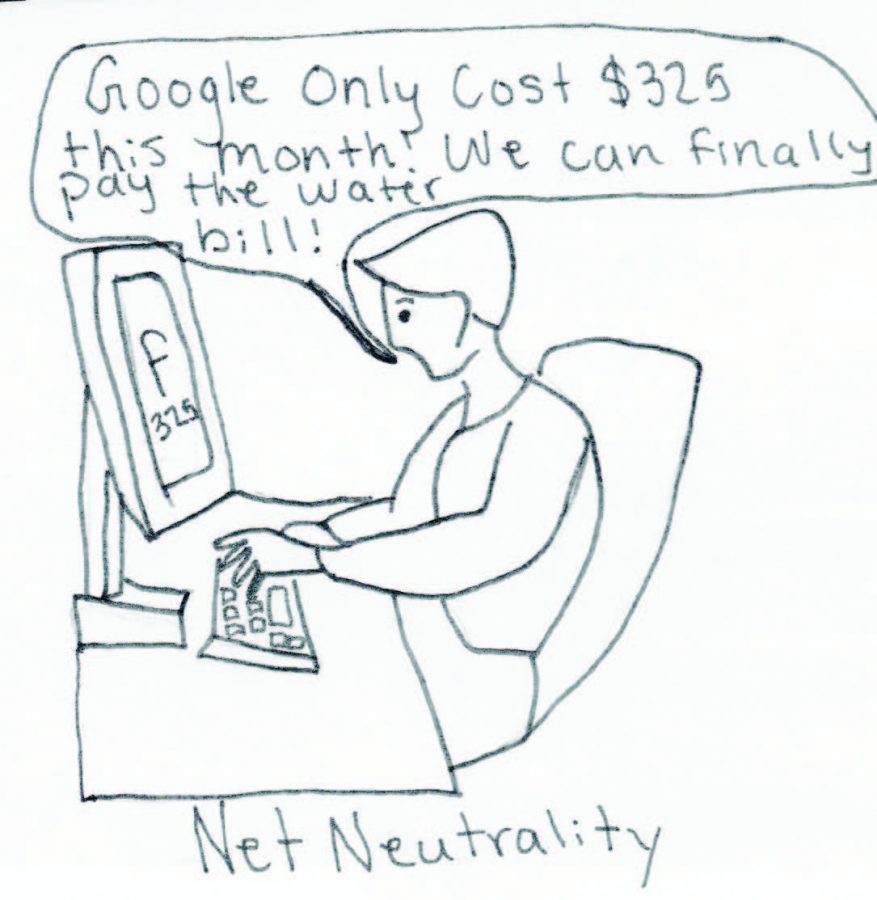Save Net Neutrality
March 11, 2018
Net neutrality is when internet service providers give their customers access to everything on the internet at one set speed. The repeal of net neutrality means that internet companies will be able to charge customers to access or to speed up certain websites, including websites that may be seen as a threat for these companies, like Netflix and YouTube.
At the same time, the ISP can charge these competitors to prevent their sites from being slowed down or blocked.
Repealing net neutrality is basically establishing a new internet that is neither free, nor open, nor equally accessible. A world without net neutrality is the idea that ISPs get to slow down their almost eminent extinction as cable television becomes less and less necessary and popular. The cost? Your internet privacy, freedom and accessibility, as companies mess with the speed, accessibility and price of certain web pages.
The repeal of net neutrality gives ISPs permission to partially control your internet experience. The internet in today’s America is a basic part of life. We use it to watch the news. We use it to buy
merchandise. We use it to research and learn. We use it to communicate.
Trampling with the internet and with the websites that allow us to do all of these things is therefore a major disadvantage for the average consumer. Messing with the price of the internet and its wealth of resources means being able to control who gets access to the internet. Net neutrality is the Constitution’s First Amendment applied to the modern world because it levels the playing field and it allows free speech, and prevents ISPs from slowing down or even blocking access to their competitors’ webpages.
For entrepreneurs, it will be harder to get to customers or an audience, as cable companies will be able to decide if their websites are slowed down or blocked, and therefore making it harder for their company to succeed. Businessmen who are just starting out depend on net neutrality to connect with customers and advertise their products. Supporters of the repeal argue that the measure
is only keeping the government from meddling with the internet. The thing is, repealing net neutrality gives power to ISPs whose only mission is to make a profit, and who therefore will charge more for certain sites.
How is that better?
Besides, in the time of net neutrality, there has been no evidence of the government meddling in the internet, unless it is for a criminal investigation, whereas companies will surely intervene for profit. Supporters of the repeal – that is to say, the ISPs – say that net neutrality rules have discouraged investment. This statement was proven wrong by the Free Press, which released an extensive report titled “It’s Working: How the Internet Access and Online Video Markets Are Thriving in the Title II Era,” which claims that 2015’s Open Internet order is “an absolute success,” that has reached its goal of “promoting the online ecosystem’s ‘virtuous cycle of investment’,” and even assures that “ISP investments accelerated following the vote.”
Keep net neutrality.





